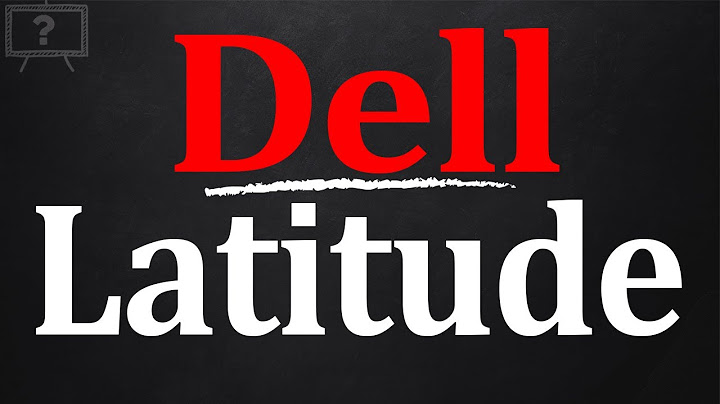A meeting of East and West doesn’t get more exciting than on Passages. The collaboration between a minimalist music composer (Philip Glass) and a sitar player (Ravi Shankar) could yield myriads of possibilities, but nothing as easily accessible to the most casual of listeners as this one. Glass has toned down his longwinded, repetitive composition style to a point where even the album’s eight-minute long compositions are in fact woven in dense layers, not succumbing to his usual flair of rhythmically hammering one solitary note repeatedly. A middle ground is also sought by Ravi Shankar, who infuses elements of Indian classical music, mostly as a part of the greater musical landscape and not as a solitary force basking all by itself in the limelight. Show Because of how the music is approached,  One of the more traditional songs on the record is “Sadhanipa,” where Shankar’s sitar solo dominates the music with an accompanying Indian percussion instrument, the tabla. The haunting ambient trumpet intro and outro add a mystique to this relatively straightforward cut; they are only testament to the album’s enthusiasm to look for ideas that are far apart from each other and bring them together in blissful cohesion. Although on most numbers, influences of one or the other – Western or Indian – play their part rather quietly, on “Ragas In Minor Scale,” they both play the lead roles, resulting in a beautiful jamming of Indian instruments to Glass’ rhythmic meters. This compositional brilliance comes to climax on the closing cut “Prashanti.” Running just under 14 minutes, this magnum opus of the album flows like a story being told, with calming music at the beginning that explodes into chaos in the middle, finally giving way to ethereal chanting vocals in Hindi that plead for peace, ending the track’s dramatic journey begging for harmony in this world full of ills. How masterfully Passages brings together disparate elements to create a rich vibrancy without sacrificing a degree of simplicity that doesn’t require a highly-tuned and sophisticated musical palate makes it a record for the masses, and a work that is in a league of its own. Rating: A User Rating: Not Yet Rated Comments © 2009 Vish Iyer and The Daily Vault. All rights reserved. Review or any portion may not be reproduced without written permission. Cover art is the intellectual property of RCA Victor, and is used for informational purposes only. Passages is a special collaboration between minimalist composer Philip Glass and Indian composer and sitarist Ravi Shankar. Shankar's smooth style fits nicely with Glass' dissonant orchestrations. Together, these two amazing musicians have synthesized their unique sounds into a cohesive album that explores a very compelling but unique soundscape. $14.99 Subscriber Price: $13.49 Format: CD Label: Sony Legacy Release Date: May 4, 2010 This is a very good CD, and I think how much you like it may depend upon if you like Glass music more than Shankar music, or if you are not a sitar fan or not a minimalism fan (but why get the CD if that is the case.) That is, the composing credits show 1/2 the pieces are written by Glass and 1/2 by Shankar, but there seems to be a more western than eastern sensibility to each piece, to such a degree that without looking at the credits, I would think each piece was written by Glass, with some sitar accompaniment thrown in on the side. I really like this CD because I really do like Phillip Glass, and I am only holding back one star because I had expectations that there would be an absolutely magical melding of two partners in some type of exact half and half musical arrangement. 10 people found this helpful Report Reviewed in the United States on September 13, 2013 How do I describe this collaboration in a way that it can do justice to the album? I have been a big fan Mr. Shankar and Mr. Glass's separately for years and I had heard some of the compositions from this collaboration in passing. But I had never made an effort to buy the whole album and listen to it to my heart's content. Finally two years ago I bought it and that's easily the best amount I've ever spent on an album. Ragas in Minor Scale is one of my favorites from the album. The way Mr.Glass brings Celtic sounds to traditional Indian Ragas (Bhiravi and Ahir Bhirav are the main ones) is just mesmerizing. If you are an admirer of Shankar's or Glass's, you won't be disappointed. 8 people found this helpful Report Reviewed in the United States on May 2, 2017 I'm only sorry I came to the party late. Years wasted not hearing this. Even the concept of the album is collaborative marvel. These artist who obviously have great respect for one another took the work of the other and arranged each piece. This music has the sparseness that we love in Philip Glasses music with the Raga overtones of Ravi Shankar. Truly one of the jewels of any recorded music collection. 7 people found this helpful Report Reviewed in the United States on May 25, 2021 The music on this CD alternates between haunting and ethereal. Absolutely beautiful. Reviewed in the United States on October 7, 2019 I like Ravi Shanker and this composition with Philip Glass is amazing!. The vinyl itself is very good quality. Excellent pressing. Amazon packing is as usual the best for buying vinyl. Reviewed in the United States on August 19, 2010 Put some Shankar in a Philip glass with lots of ice, shake well, add some fresh squeezed lime and you have a perfect combination of NYC does India. A beautiful ride into world music. "Hindustani Offering of Contemporary Sadhanipa into Minimalist Channels and Winds with Classical Ragas in Minor Scale, all Meetings Along the Edge of Chamber Music, love Prashanti American Style" 5 people found this helpful Report Reviewed in the United States on January 14, 2020 It would be hard to find a reason not to own this album. Reviewed in the United States on September 9, 2017 Glass and Shankar make an interesting, if not always compelling, combo. Reviewed in the United States on July 22, 2013 This will take some more listening, but I like what I have heard. I can see both of their influences in each of the pieces. What is the best work of Philip Glass?PRS for Music: Philip Glass' Most Popular Works. Where to start with Philip Glass?Essential Philip Glass: 6 pieces you need to know. Glassworks. This 1982 disc of shorter works by Glass is the classic way in. ... . Music in Twelve Parts. This piece, completed in 1974, is Glass's definitive early work. ... . Koyaanisqatsi. ... . String Quartet No. ... . 'Heroes' Symphony. ... . Einstein on the Beach.. Why is Philip Glass important?Through his operas, his symphonies, his compositions for his own ensemble, and his wide-ranging collaborations with artists ranging from Twyla Tharp to Allen Ginsberg, Leonard Cohen to David Bowie, Philip Glass has had an extraordinary and unprecedented impact upon the musical and intellectual life of his times. What is the musical style of Philip Glass?He is a minimalist composer The minimalist opera genre is best categorised by its use of repetitive sounds over long periods, which has a hypnotic, meditative feel. Although his works can be described as minimalist, Glass prefers to describe himself as a composer of 'music with repetitive structures. |





















